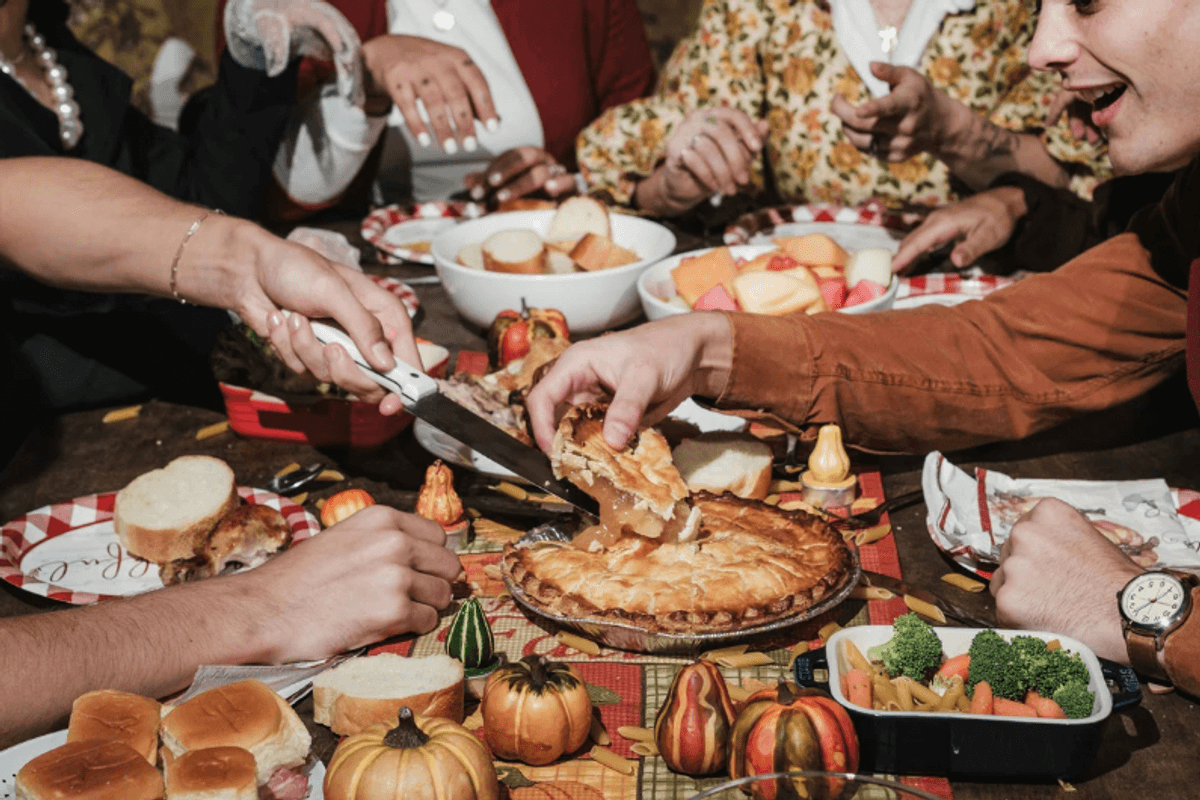Scientists just made a major bee-vaccination breakthrough. Here's why it's such a big deal.
How do bees vaccinate their babies? Now we know.
By now, you probably know about how amazing bees are and why we need them.
Bees are responsible for making a third of our food possible. From cherries to blueberries to cucumbers to apples and so much more, bees are essential. That, and they're responsible for the world's supply of honey — which in addition to being delicious, can be used to treat wounds because of its awesome medicinal and antibacterial properties.
Does anyone know why bottles of honey are shaped like bears? Photo by Paul J. Richards/AFP/Getty Images.
You might also be aware that bees have been through some rough times lately.
Over the past few years, you may have seen some headlines like this:
Turns out that the die-off of an insect responsible for a massive portion of the world's food supply is enough to make people a little anxious.
But there's some great news! Researchers have made a major discovery that might help us prevent the bees from dying.
It turns out that bees vaccinate their babies against disease by feeding them a special blood protein called vitellogenin. Before this discovery, we basically had no idea how adult bees transferred disease immunity to their larvae.
Photo by Saul Loeb/AFP/Getty Images.
"The process by which bees transfer immunity to their babies was a big mystery until now. What we found is that it's as simple as eating," said Gro Amdam, an Arizona State University School of Life Sciences professor and co-author of the study. "Our amazing discovery was made possible because of 15 years of basic research on vitellogenin."
Bee vaccinations work a bit like this:
Worker bees head out into the world to pollinate plants, build the honeycomb, and do other bee-related activities. They also are responsible for making food for the queen from the pollen they collect. The food contains bacteria, and when the queen eats, the bacteria is stored. The bacteria travels to developing eggs, and as a result, baby bees are born with immunity against some common diseases.
Photo by Frank Rumpenhorst/AFP/Getty Images.
But why should we care? Remember how I mentioned that bees are pretty important and we need to protect them? That.
Now that we know how bee vaccination works, we can start working on man-made insect vaccines to stave off colony collapse disorder and other challenges facing our honey-producing friends. Science is awesome.
Long live the bees!
Photo by Ralph Orlowski/Getty Images.



 A Baby Boomer garage filled with stuff.
A Baby Boomer garage filled with stuff.
 Dirty dishes left on a tableCanva
Dirty dishes left on a tableCanva Gif of overwhelmed waitress via
Gif of overwhelmed waitress via 


